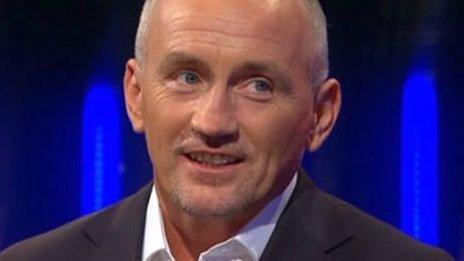From defection to redemption in Castro's Cuba
- Published
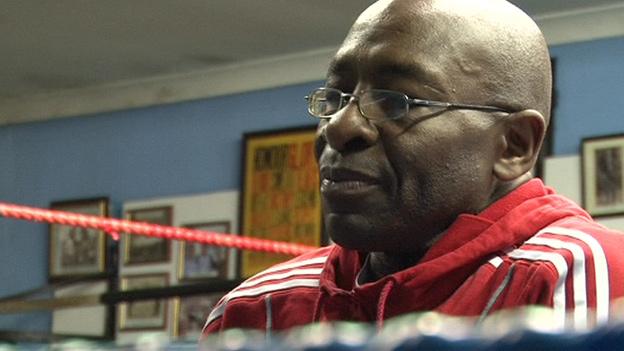
Cuban boxing coach Nicolas Cruz
Defecting from Fidel Castro's Cuba was not a decision to be taken lightly. Its repercussions could be deep and long lasting.
For Cuban boxing coach Nicolas Cruz it led to a pivotal moment in his life which he still remembers vividly.
"I said to myself I have nothing else to do in this world. I don't know when I will see my family again and I am to blame. I'm going to find a solution. So I got a rope and was ready to take my life."
Cruz, who coached the Irish amateur boxing team at the 1988 and 1992 Olympics, describes how leaving his family behind in Cuba when he defected to Ireland brought him to the point of utter despair.
Nicolas Cruz - Cuban defection: boxing despair and redemption
Cuban boxing ban
The widely held perception is that professional boxing was banned in Cuba in 1962 because Fidel Castro, Cuba's long-serving president whose death was announced on Friday, regarded it as both corrupt and corrupting.
Cruz has another take on this and contends that the sport was banned due to the inherent risk of injury.
"Professional boxing is banned in Cuba because the authorities say it is too dangerous and unsafe," he said.
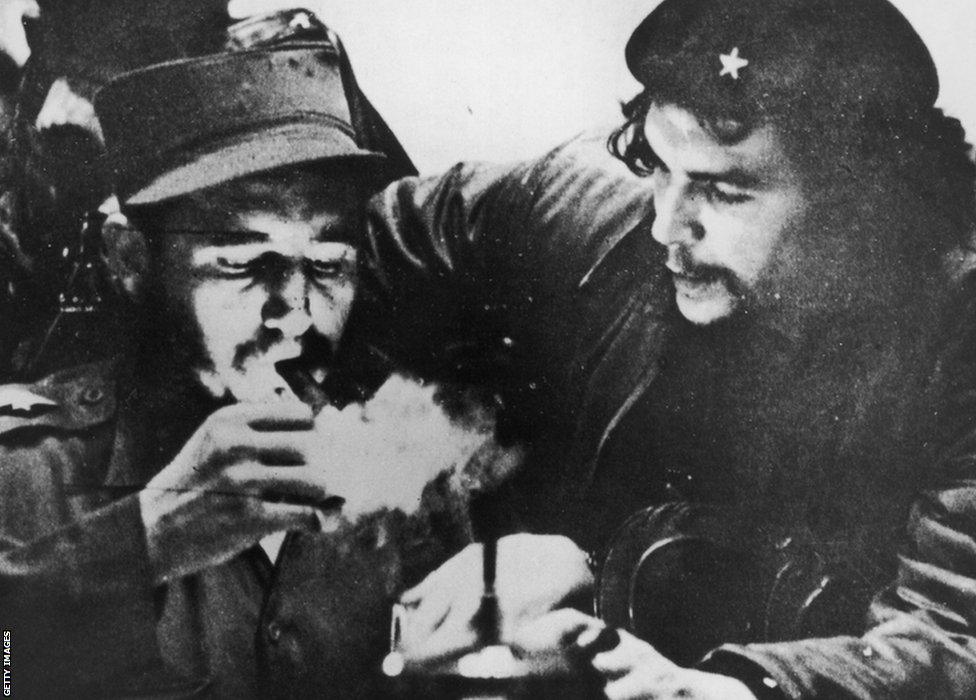
Castro in the mid-1950s with another leading revolutionary - Che Guevara
Cruz provides an interesting caveat to this argument, which surrounds Muhammad Ali's visits to Cuba in the 1990s.
"The Cuban authorities compared the state of Ali's worsening health due to Parkinson's disease with that of Teofilo Stevenson, the famous Cuban heavyweight boxer who won three Olympics titles but never turned professional," he maintains.
Cruz said Ali's tragic decline was used in Cuba as further evidence of the dangers involved in professional boxing.
Cuban's amateur boxers are regarded as the best in the world but ever since Castro's ban in the early 1960s a Cuban boxer who wishes to turn professional is faced with the agonising decision of defecting from his homeland, leaving his family behind and being unable to return for many years.
Cruz reflects on how he ended up living in Ireland: "The Cuban Boxing Association asked me to train the Irish amateur boxing team at the 1988 Olympics in Seoul. I fell in love with Ireland and Irish boxing and returned many times in the coming years."
Irish boxing
A highlight of Cruz's stewardship of the Irish team was the 1992 Olympics in Barcelona. One of the success stories was Belfast's Wayne McCullough, who won a silver medal at the Games. McCullough went on to turn professional and became WBC World Bantamweight Champion in 1994.
Trainer Nicolas Cruz talks about the similarities and differences between Ireland and Cuba in and out of the boxing ring.
"Wayne McCullough was an amazing fighter. He was the most dedicated, hardest training fighter I ever met. You couldn't stand in front of him - he would take your head off."
Cruz sees similarities between the Irish and Cuban people: "The idiosyncrasies and culture of both sets of people are very similar, both have a great fighting spirit and a lot of courage."
He quickly came to realise there were fundamental differences in their boxing styles, which he put down to Ireland's inclement weather and the Cubans' superior dancing ability.
"The weather here is cold so you need to walk fast to keep yourself warm, which can make the fighter more tense. Cuban boxers generally come into the ring stress free. The Cuban boxers always have excellent rhythm, with their Salsa dancing background helping."
Defecting from Cuba
He eventually became a victim of his own success with the Irish team, as he maintains the Cubans started to feel threatened by the Irish achievements.
"In 1996 the boxing authorities in Cuba decided they would take back Cuban coaches who were working with countries which could take medals from them in the Olympic games in Atlanta, so they refused me permission to train the Irish team", he said.
Cruz then made the heartbreaking decision to leave his family behind in Cuba to set up life in Ireland as a boxing coach in March 1996.
"I felt I had to go to make a living, but if you defect from Cuba you cannot apply for a visa to return for at least five years and I didn't have the resources to bring my family including my young daughter and son with me to Ireland."
Cruz went through a very difficult period in his life, including the break up of his marriage. The disappointment of not being able to coach the Irish boxing team at the Atlanta Olympics only added to his despair.
"I felt I had nothing to look forward to, so I got a rope and decided that one of the trees at the back of the National Stadium in Dublin would be an appropriate place for it because that's where everything had started," he recalls.
A meeting with a Buddhist monk at the gym was the catalyst for Cruz to begin to see he might have something to live for.
Symbolically, Cruz decided to tear that same rope into three pieces. He then tied the pieces together and used it for a boxing exercise in the gym in which the boxers bob and weave around it.
"I carried that rope around until it was no good anymore", he said.
Devastatingly for Cruz his father died during his forced expulsion from Cuba: "I just wanted to be there for the last moments of my father's life but it was impossible."
Teofilo Stevenson
Teofilo Stevenson is regarded by many as the greatest Cuban boxer of all time, winning three consecutive Olympic gold medals from 1972 to 1980.
He is arguably most famous for turning down the opportunity to become professional and fight Muhammad Ali. Stevenson stayed loyal to the Cuban revolution, which outlawed professional sports with the memorable line: "What is one million dollars compared to the love of eight million Cubans?"
While Cruz has great respect for the stance Stevenson took he urges understanding of those boxers who decide that an Olympic medal and the adulation of their people is not enough.
He knows from his own painful experience if you defect from Cuba you are regarded as a traitor.
"When I finally left Cuba in 1996 I held my head high but deep down in my heart I knew I was a traitor because I had turned my back on my country. Money isn't everything but if you don't have it you are in trouble. I had to try to make a decent living for my family."
Life in Castro's Cuba
After Cruz's harrowing story he could be forgiven for feeling embittered towards Fidel Castro and Cuba but this is not the case. In fact he speaks positively about some of the changes Castro made when he came to power in 1959.
"For the first time black people in Cuba were free to walk anywhere and have access to everything without being discriminated publicly.
"Education was available to all and our healthcare system was second to none.
"When I return home I keep a low profile because I feel guilty that I wasn't there fighting with my fellow countrymen against the most powerful nation in the world with the trade embargo."
Following the news of Castro's death, how does Nicolas Cruz reflect on Cuba's former leader?
"This is a very sad moment for me and many others. He was a great man for us."
- Attribution
- Published26 November 2016
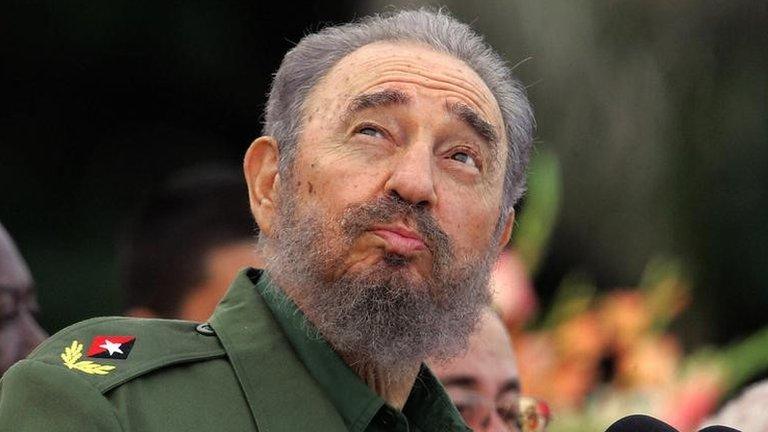
- Attribution
- Published26 November 2016
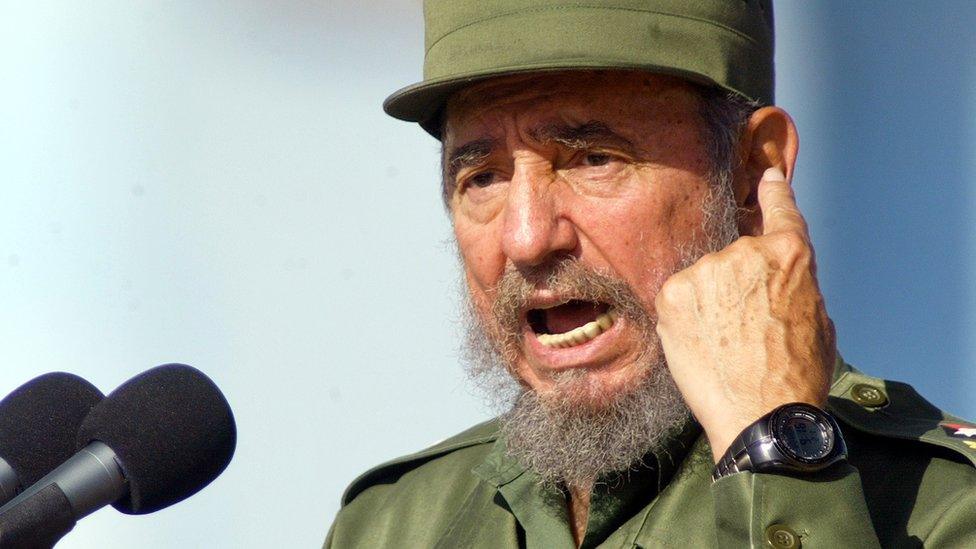
- Published18 April 2013
